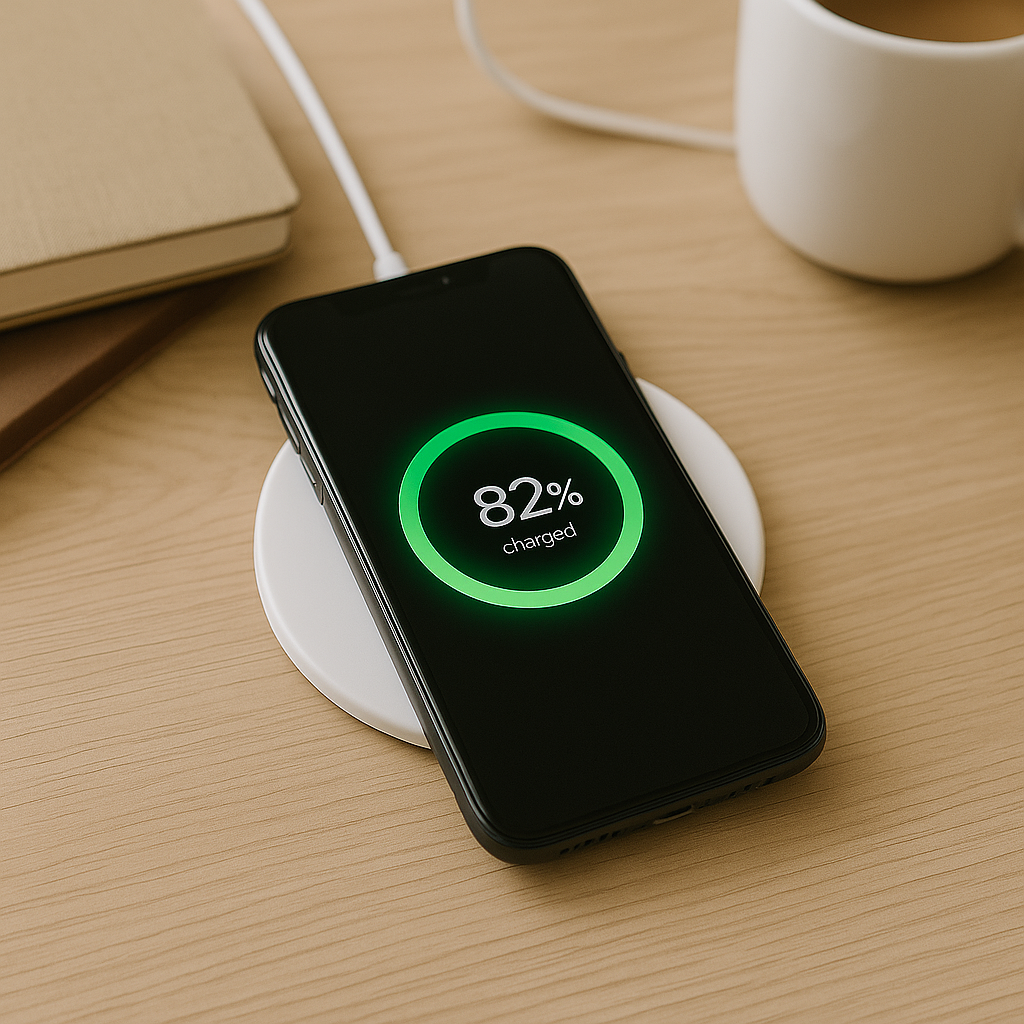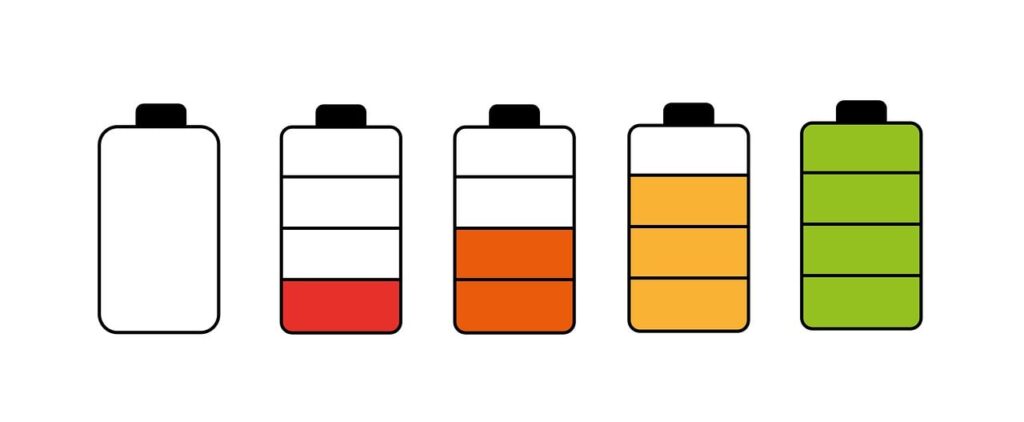
Wireless charging is one of the most desirable smartphone features in recent years. With the ability to simply drop your phone onto a charging pad and juice up without having to deal with cables, it’s no wonder more and more people are making the switch. But like most new technologies, concerns abound — and one of the most frequently asked questions is: Is wireless charging bad for battery life?
In this post, we will dissect the facts, research how wireless charging operates, and cover whether it damages your battery over the course of its lifetime.
How Does Wireless Charging Work?
It’s a system called inductive charging, and it’s how most wireless chargers and wireless charging-enabled devices operate. Instead, it uses electromagnetic fields to transfer power from the charging pad to your device. Coils inside the pad and the phone create and transmit the energy, turning it into electrical power to charge the phone’s battery.
Wireless charging advantages :
- No need for physical cables
- With the charging plugs it also prevent wearable down on the device’s charging port.
- Is it safer so sparks are not created or wires don’t move.
Does Wireless Charging Affect Battery Health?

Getting straight to the point: Is wireless charging harmful to your battery?
In essence, the answer is no — however, the way you use it is important.
Electronic batteries that are rechargeable, such as the lithium-ion cells in your smartphone, will wear out as they age. Their durability is influenced by aspects such as:
- Speed of charging
- Heat created
- How often it is charged
- Discharge depth (the extent to which the battery is emptied before recharging)
Wireless charging can influence some of these factors:
1. Heat Generation
One of the many issues associated with wireless charging is the heat factor that is generated more. Due to energy loss while transferring power, wireless chargers are prone to heating up more than wired charging. The prolonged exposure to high-temperature conditions can lead to quicker battery wear and tear.
Tip: Get a wireless charger that has a cooling system integrated or run it in a place with good air circulation so that the heat generated is reduced.
2. Frequent Top-Ups
Due to the wireless charging is convenient, a lot of users have their phones on the pad several times a day for quick charges. Charging constantly can result in additional charging cycles that cause the battery capacity to decrease slightly over time.
Tip: It is better to charge your battery only to between 20% and 80% than to 100% every time.
3. Faster Wireless Charging Risks
Fast wireless charging is a feature of some contemporary wireless chargers. Although this is excellent for rapid power-ups, excessive usage of quicker charging may shorten battery life because it produces more heat.
Tip: When feasible, use standard-speed charging instead of fast charging.
The Verdict: Is Wireless Charging Bad for Battery?
No, wireless charging is not inherently negative for your battery. This technology is built to prevent damage to your device. However, as with anything, there are compromises to be made – mostly heat and the desire to charge your device at will and too frequently.
If you manage heat properly, avoid fast wireless charging too frequently, and you practice good charging habits, wireless charging is completely safe and a useful way to charge your device regularly.
Tips for Healthier Battery Charging
To make sure your battery performs at its highest level no matter if you charge it through wire or wirelessly:
- Do not charge to 100% or let it run out completely very frequently.
- While charging, make sure your phone is not in direct sunlight or hot place.
- Utilize charging pads which are of high quality and have been certified.
- If your handset has such functions (e.g. like iPhone’s optimized battery charging), turn on battery health features.
Conclusion
So the next time someone asks, “Is wireless charging bad for battery?”, you can confidently say — not if used wisely. It’s a convenient, modern way to charge, and with a few mindful habits, you can keep your battery healthy while enjoying the cable-free lifestyle.
FAQs
Is it safe to charge wirelessly overnight?
Generally yes, but prolonged heat and 100% trickle charging might impact battery health over time.
Should I keep my battery between 20% and 80%?
Yes — maintaining this range helps extend overall battery health.
Does wireless charging cause overheating?
Wireless charging generates more heat than wired charging due to energy loss during the transfer process. However, most modern devices and certified chargers are equipped with safety features to control heat. To minimize risks, use chargers with temperature regulation and avoid charging in hot environments.
Can I use a phone case with a wireless charger?
Yes — most wireless chargers work fine with standard phone cases up to 3-5mm thick. However, cases made of metal or those with built-in magnets can interfere with wireless charging and cause excess heat. It’s best to use a wireless charging-compatible case for optimal performance.
